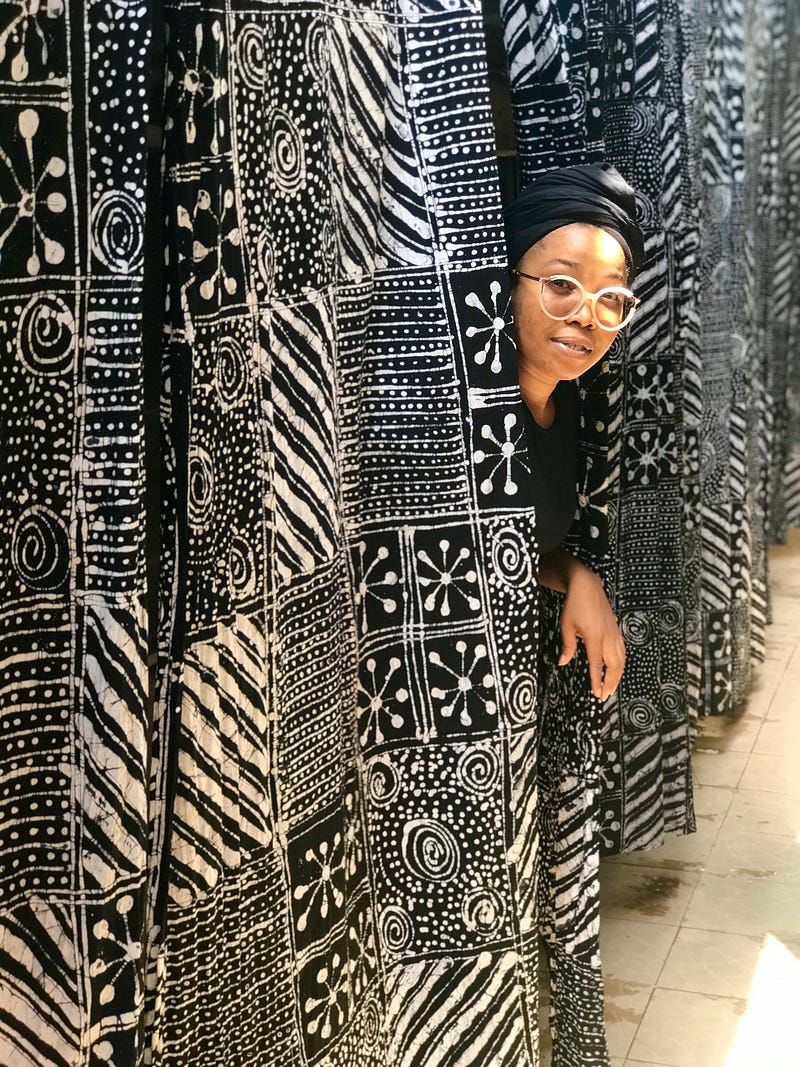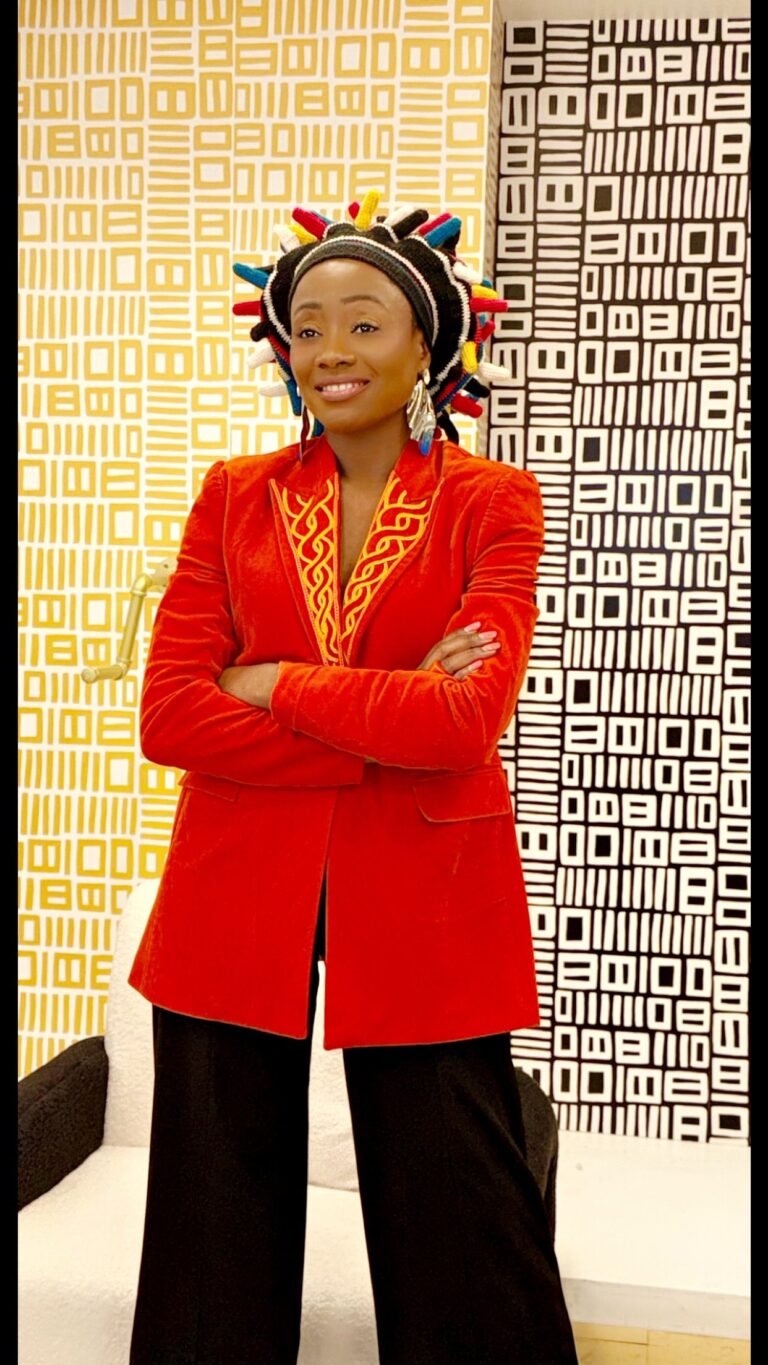Afrikstabel is a Nigeria based textile manufacturing company that uses traditional techniques to produces unique and sustainable printed fabrics for companies across the globe.
What was the idea behind your business?
I initially studied about textiles in the university. I was interested in knowing all about textiles. My goal was to improve the textile industry {in Nigeria} -promote and revive it. In 2016, I won an award in fashion and design in school which inspired me to understand more about textiles. Then in 2018, I visited communities that deal with textiles to get more understanding. It was through that visit that I realized that those that make textiles locally struggle and have very little access to market beyond their surrounding environs.
What has working locally with artisans taught you so far?
The challenge is in managing people- especially because I have workers all the way from Senegal , Guinea, Togo , and different parts of Nigeria. But I plan to have different artisans from other African countries. The challenge we face most is language and cultural barriers but I appreciate the diversity that comes along with it.
Apart from cultural and language barriers, what else are some of the challenges that you face?
We also have the challenge of fragmented markets. I have to act as an intermediary between the artisans and the market. Another major challenge lies in finding skilled full-time artisans.

Describe the work culture you have cultivated.
Well weekends are off. When we work we start our day at 8:30 AM and then take a break at 1 PM. I realized most of the workers do not take breaks and had to break that cycle. Hence I emphasize on a break between 1–2 PM. We then close by 6 PM. I offer accommodation to the workers, and plan on building a bigger structure to occupy more of them.
What is the gender make-up of your workforce?
I have both men and women in my employ. Our primary focus is on people who are truly in need of help. Like I said, I offer them accommodation, so that I can create a very conducive environment for productivity.
What steps are you taking to improve and also deal with ethical waste management?
We have plans underway to use technology in extraction of natural dyes. We are looking for ways we can use technology to help us extract and preserve these dyes in large scale to be used for our fabrics. Since we work with natural dyes and fibers, it is safe for the environment. We want to invent eco-friendly dyes to make our products a 100% sustainable.
For someone who would want to start a business similar to yours, what would be your advice to them?
Well first, we are a textile company that produces sustainable fabrics globally on a B2B basis and providing exclusive prints. We tell our stories through our fabrics. That being said, anyone seeking to explore this field needs to do extensive research, understand the market, spend time with the artisans and them guide them in accordance with your wants.
Lastly, your name is so beautiful. What does it mean?
Madu in my native language, Igbo, means “human”. Ifebuchechukwu which is my second name means “let that which is the will of God be done.” Chukwu is “God”. In short, ‘human, God’s will’. I think my humanitarian nature comes from my name. My mission is to travel to other African countries to understand their textiles companies.

